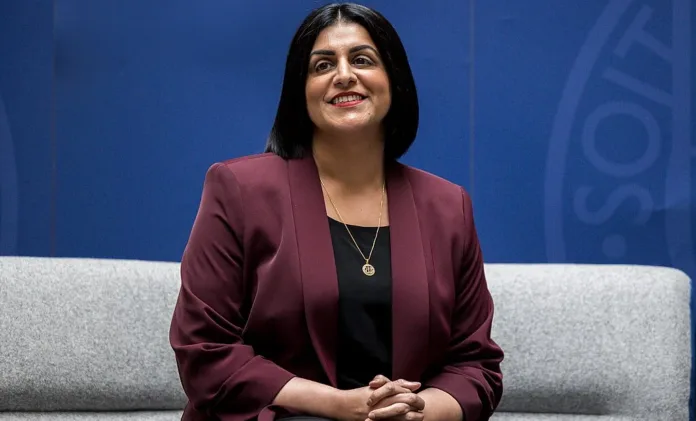Labour rocked by unrest as Mahmood pushes toughest refugee reforms in a generation
Home Secretary Shabana Mahmood has issued a stark warning to Labour MPs, claiming that “dark forces are stirring up anger” over migration as the party braces itself for a fierce internal battle over the most extensive overhaul of refugee rights in decades. Her remarks come on the eve of a major announcement unveiling new laws that will reshape asylum appeals, redefine refugee status and tighten interpretations of human rights protections.
In an article for the Guardian, Mahmood said public anger about illegal migration risks turning against people like her – second-generation immigrants – unless the government imposes tighter border controls. She argued that a country without secure borders becomes a less safe place for communities that already face prejudice. “Dark forces are stirring up anger in this country, and seeking to turn that anger into hate,” she wrote, urging MPs to back her plans in order to prevent social fractures.
But senior Labour figures are increasingly alarmed by the severity of Mahmood’s proposals. The Guardian has learned that at least one minister is on resignation watch, and several aides have voiced “significant unease”. Two sources said they were particularly troubled by the prospect of stepped-up deportations affecting refugee families, including those with school-age children who have begun to build lives in the UK.
Charities have warned the reforms could trigger “another Windrush scandal”, leaving recognised refugees in a state of near-permanent uncertainty. They argue that constant reassessment of status would make long-term stability impossible, hindering integration and uprooting children from schools. Enver Solomon of the Refugee Council said the plans could see teenagers preparing for GCSEs forcibly removed, drawing comparisons with the treatment of long-established migrants during the Windrush crisis.
Embed from Getty Images
Despite the concerns, Mahmood is set to introduce three new safe and legal routes for refugees from war-torn countries, including Sudan, Palestine and Eritrea. These routes will apply to students, workers in specific professions and those sponsored by community groups. Refugees arriving under these schemes will not receive permanent settlement, and their status will be reviewed every 30 months.
Alongside that, the government will legislate to harden how British courts apply the European Convention on Human Rights (ECHR) protections related to family life, making it easier to deport people even if they have relatives in the UK. A new body will fast-track cases involving dangerous offenders or those deemed unlikely to succeed, while asylum applicants will be restricted to a single appeal.
Mahmood has also written to embassies of Angola, Namibia and the Democratic Republic of Congo, threatening visa bans unless they begin accepting removals from the UK within a month. She is expected to confirm the move when she presents her overhaul.
Senior Labour MPs worry the measures will hit Ukrainian families who arrived after fleeing war, many of whom have integrated deeply into British communities. The Labour MP Tony Vaughan urged the government to “think again”, saying the plans represent “the wrong turning”. Stella Creasy warned that keeping refugees in a “state of perpetual limbo” for decades is both economically damaging and morally wrong.
Yet Mahmood insists the reforms are necessary to maintain public consent and counter pressure from Reform UK. She argues that without decisive action, Britain risks losing support for the asylum system altogether. “To be a Greater Britain, not a littler England, we must restore order and control,” she wrote.
With almost 40,000 people crossing the Channel so far this year and asylum applications at record levels, the government expects legal challenges. But the Conservatives have hinted they may back Mahmood’s plans if Labour rebels threaten their passage, even as they criticise them as inadequate.
